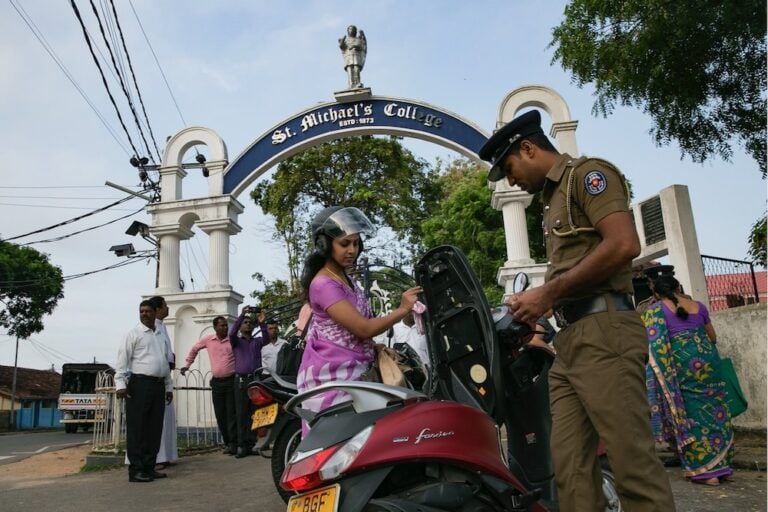(FMM/IFEX) – The following is a 19 November 2006 FMM press release: Dinamina Editor removed, without any reason given Mr. Chandrasiri Dodawatta, chief editor of the newspaper “Sinhala Daily Dinamina”, was removed from his editorship on 19 November 2006 without any reason given for his removal. He is the third chief editor removed from the […]
(FMM/IFEX) – The following is a 19 November 2006 FMM press release:
Dinamina Editor removed, without any reason given
Mr. Chandrasiri Dodawatta, chief editor of the newspaper “Sinhala Daily Dinamina”, was removed from his editorship on 19 November 2006 without any reason given for his removal. He is the third chief editor removed from the post within a year. The newspaper belongs to the state-controlled, public services media institution, Lake House.
Lake House, once the largest privately-owned media house in Sri Lanka, was taken over by the predecessors of the present ruling party 33 years ago, on the promise that its ownership would be broad-based. This legal requirement remains only a promise.
According to unofficial sources, the reason for this removal was the misreporting of the president’s birthday, as 19 November rather than the 18th. FMM deplores this decision, which seems to be a political one.
Only a month ago, the chief editor of Lake House’s weekend English-language newspaper, Mr. Rajpal Abenayaka, was removed, with cause for the dismissal cited as a column of his which was slightly critical of the president’s speech to Sri Lankan diplomats the week before.
Recently Mrs Anoma Wattaladeniya, Director of Education for the Sri Lanka Rupavahini Corporation (SLRC, the public service television station), was sent on compulsory leave over a health programme; the reason given was that the programme’s showing of a youth’s anatomy, including genitals, was “indecent” and brought to the president’s notice.
The removal of Dodawatta from his post is a clear case of interference with the newspaper’s editorial independence, an indispensable component of press freedom. This tradition of appointing and removing editors at the whim and fancy of politicians imposes a regime of indirect censorship on state-run (public) media.
Although public media should be given independence to function as public service media, all Sri Lankan governments so far have used these media to promote their parties and political agendas. There has been no transparent and accountable policy on appointing or removing editors or other individuals of high rank in public media.
FMM reiterates the need to transform state-controlled public media into truly independent public service media institutions to safeguard the rights of journalists as well as of the people of this country.


